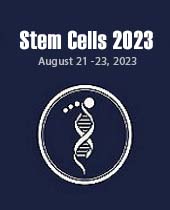Title : Liver cell therapies: From hepatocyte transplant to placental stem cell infusion
Abstract:
Thirty years ago, hepatocyte transplant was validated as effective and safe treatment for patients with acute and congenital liver disease. A severe shortage of useful liver tissues limits a wider application of this cellular therapy. Stem cell sources for hepatocyte transplants would be useful, and placenta represent a non-controversial and readily available source of stem cells that can be used in regenerative medicine. We previously reported as amnion epithelial cells (hAEC) from term human placenta express surface markers and genes characteristic of pluripotent stem cells. Importantly, they do not express telomerase, are not immortal and are not tumorigenic. Encouraged by the lack of tumorigenicity and hepatic differentiation in vitro, and in vivo we examined the efficacy of hAEC transplants in mouse models of acute liver failure and metabolic liver disease. We reported that hAEC transplants reverse acute liver failure and significantly improve different human-relevant immunocompetent preclinical models of metabolic disorders, without immunosuppressive drugs. hAECs have reported tolerogenic, anti-inflammatory and immunomodulatory properties, and characteristic membrane-bound or solubkle meditors expressed by hAEC may explain why allotransplants may be tolerated without added immunosuppression. Based on this strong preclinical data, we have received ethical approval to treat patients with liver disease with hAEC cellular therapy.


